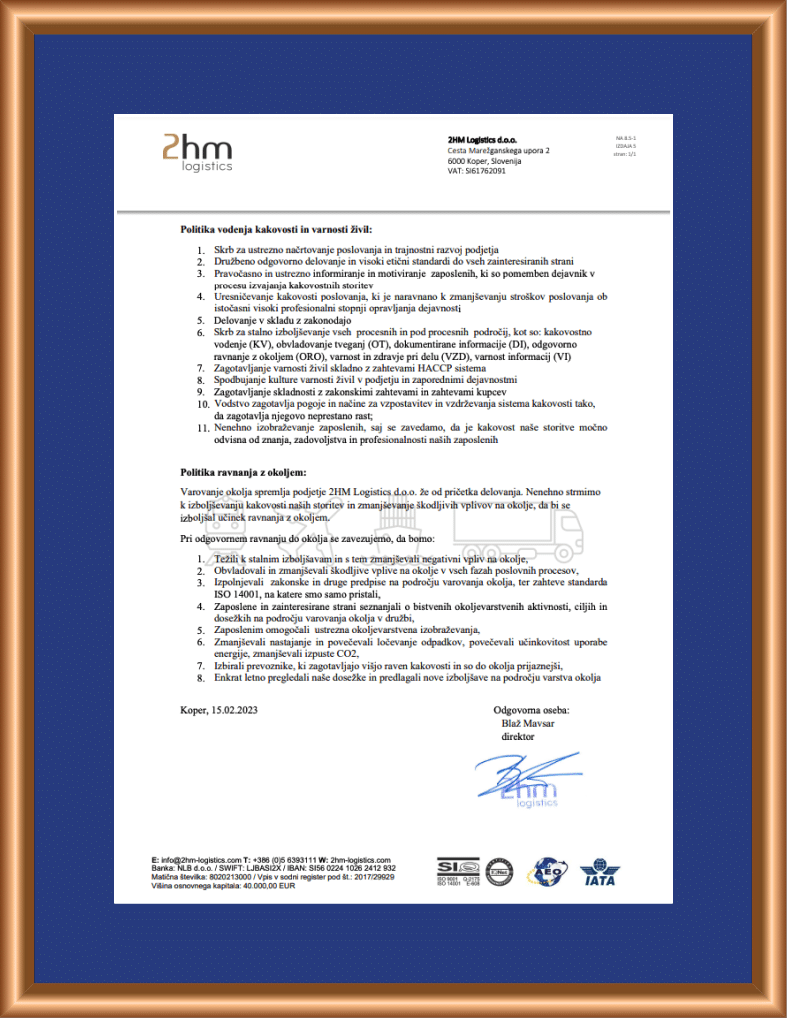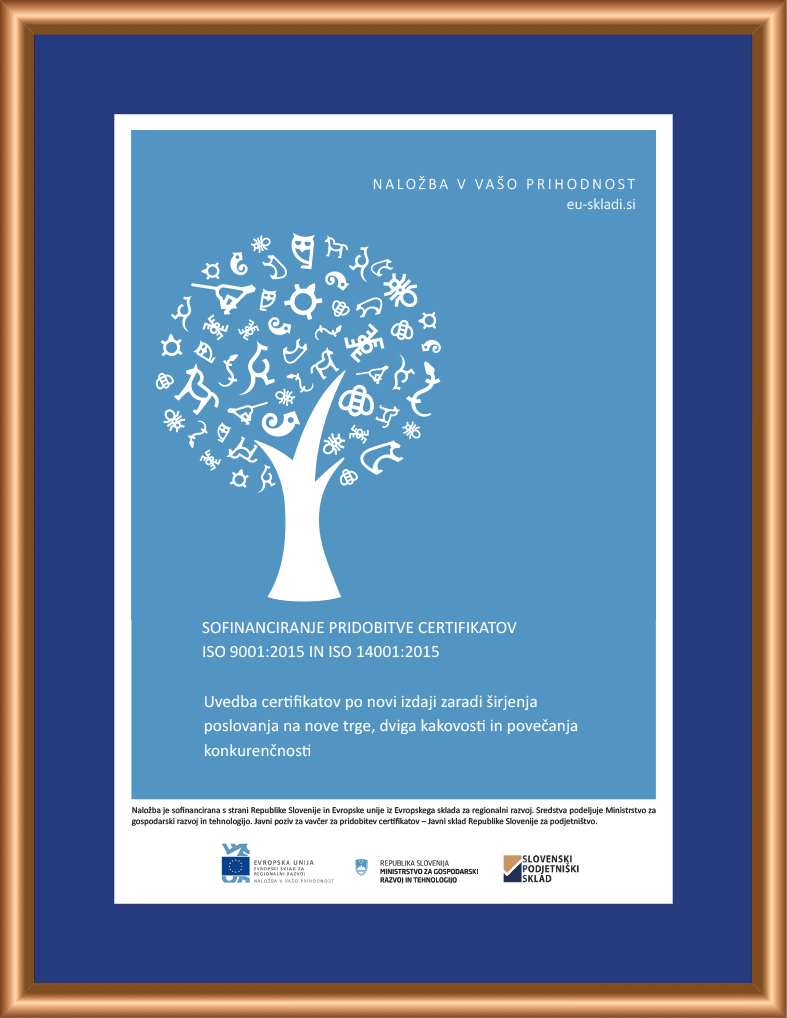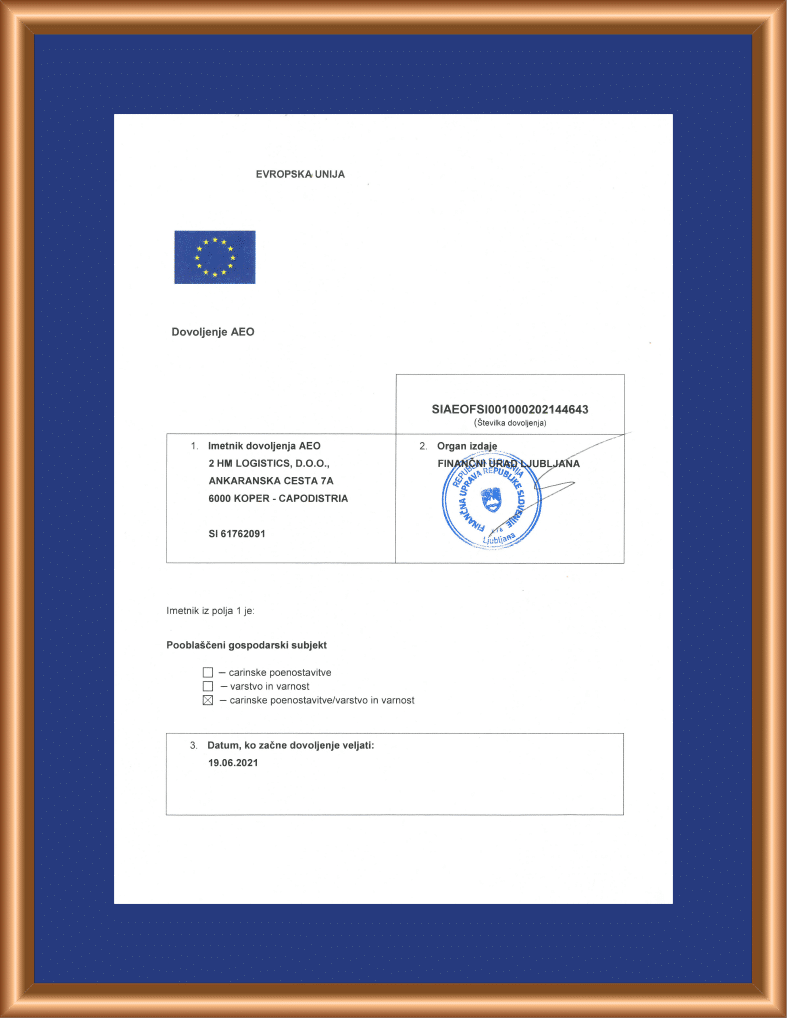Fiscal Clearance
Fiscal clearance is a critical component of international trade, allowing companies to manage VAT and duties efficiently when importing goods. At 2HM Logistics, we specialize in navigating fiscal regulations to optimize your trade processes and minimize financial burdens.
Fiscal Clearance
Fiscal clearance is a critical component of international trade, allowing companies to manage VAT and duties efficiently when importing goods. At 2HM Logistics, we specialize in navigating fiscal regulations to optimize your trade processes and minimize financial burdens.
More Customs Clearance Services
What is Fiscal Clearance?
Fiscal clearance involves managing the tax obligations that arise during the importation of goods. It primarily focuses on VAT and duty management, ensuring that your business complies with local tax laws while taking advantage of any deferrals or exemptions that might be available. This process is crucial for businesses looking to optimize cash flow and reduce upfront costs associated with importing goods.
How We Can Help
- VAT and Duty Deferral: We facilitate the deferral of VAT and duties to improve your cash flow, allowing you to defer these costs until the goods are sold or utilized.
- Compliance Assurance: Ensuring full compliance with tax laws and regulations to avoid penalties and delays.
- Customs Liaison: Direct coordination with customs authorities to streamline the fiscal clearance process.
Advantages of Fiscal Clearance
- Improved Cash Flow: By deferring tax payments, businesses can better manage their operational costs and improve financial planning.
- Reduced Initial Costs: Minimizes the upfront expenses related to taxes and duties when goods enter the country.
- Regulatory Compliance: Ensures that all fiscal policies are adhered to, maintaining your company’s reputation and legal standing.
- Enhanced Efficiency: Streamlines the import process by simplifying tax and duty management.
Disadvantages of Fiscal Clearance
- Complex Regulations: Navigating fiscal policies can be complex and requires a deep understanding of local and international tax laws.
- Dependency on Timely Processing: Delays in fiscal clearance can affect the release of goods and disrupt supply chains.
- Risk of Non-Compliance: Inaccurate handling of taxes and duties can lead to serious legal and financial consequences.
- Administrative Overhead: Managing fiscal clearance requires meticulous record-keeping and constant monitoring of regulations.
Strategic Fiscal Advantages at the Ports of Koper and Rijeka
The Ports of Koper and Rijeka serve as crucial gateways to Central and Eastern Europe, offering significant fiscal representation benefits. Both ports allow for deferred customs duties and VAT, providing substantial advantages for international traders:
- Fiscal Representation: Streamlines customs processes, optimizes tax liabilities, and ensures full compliance with EU regulations at both Koper and Rijeka.
- Efficient Logistics: Equipped with modern infrastructure, direct rail, and road connections, both ports enable swift cargo handling and distribution across the EU.
This section highlights the fiscal and logistical advantages of both the Port of Koper and the newly opened Port of Rijeka, underscoring their roles as ideal hubs for managing international trade operations.
General Fiscal Representation (GFR)
General Fiscal Representation is ideal for foreign companies engaging in frequent and varied import activities within Slovenia and the EU. It involves acting on your behalf for all transactions where Slovene VAT is applicable. Key benefits include:
- Postponed VAT Accounting: Apply for VAT deferment on imports, enhancing cash flow.
- Unified Import Declarations: Simplify customs clearance with a single declaration for multiple supplies.
- Extensive Market Access: Facilitate sales within Slovenia and re-export to EU markets under one comprehensive fiscal umbrella.
- Strategic Tax Management: Manage VAT obligations efficiently, ensuring full compliance with local tax regulations.
FAQs
What is VAT deferral and how can it benefit my business?
VAT deferral is a system that allows businesses to delay the payment of VAT on imported goods until they are sold or further processed, rather than at the point of entry. This financial arrangement can significantly benefit your business by improving cash flow and liquidity. By deferring the VAT payment, you can use the capital that would otherwise be tied up in tax payments for other critical business activities, helping to manage and stabilize your operational finances.
What are the risks associated with fiscal clearance?
Fiscal clearance, while essential, comes with several potential risks:
- Compliance Risks: There is a high risk of non-compliance due to complex and frequently changing tax laws and regulations. Failure to comply can result in hefty fines, penalties, and legal disputes.
- Delays in Clearance: Mismanagement or errors in fiscal documentation can lead to delays in the clearance process, impacting your supply chain and delivery schedules.
- Financial Liabilities: Incorrect calculation of taxes or duties can lead to unexpected financial liabilities, affecting your business’s profitability and budgeting.
- Reputational Risk: Non-compliance or delays can damage your reputation, affecting your relationships with customers and partners.
How can 2HM Logistics assist in reducing fiscal clearance costs?
2HM Logistics employs several strategies to help reduce the costs associated with fiscal clearance:
- Expertise and Guidance: Our team of experts provides guidance on the latest regulations and compliance requirements, ensuring that all fiscal documentation is accurate and compliant, thus avoiding costly errors and delays.
- Efficient Processing: We leverage our established relationships with customs and tax authorities to expedite the clearance process, reducing the time and resources spent on clearance procedures.
- Advanced Technology: By utilizing state-of-the-art technology, we streamline the documentation and clearance processes, which helps in reducing administrative overhead and improving accuracy.
- Customized Solutions: We analyze each client’s specific needs and tailor our services accordingly to ensure the most cost-effective fiscal clearance strategies, including taking advantage of any eligible exemptions, deferrals, or lower tariff classifications.
By addressing these aspects, 2HM Logistics not only helps mitigate the risks associated with fiscal clearance
Limited Fiscal Representation (LFR)
Limited Fiscal Representation is suited for EU-resident companies that import goods into Slovenia for subsequent supply to other EU countries. This model uses the VAT number of the representative to claim VAT exemption on imports, streamlining the process significantly. Key aspects include:
- No Need for Slovene VAT Registration: Simplifies the import process as no local VAT registration is needed.
- Cost Efficiency: Ideal for businesses with smaller scale imports or infrequent shipments.
- Streamlined Customs Clearance: Use of LFR for customs declaration simplifies the paperwork and reduces the time required for customs clearance.
- Specific Buyer Orientation: Requires knowledge of the buyer at the time of import to streamline processing and compliance.






